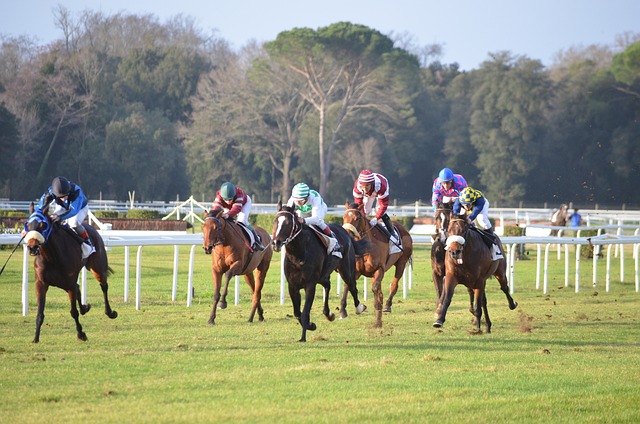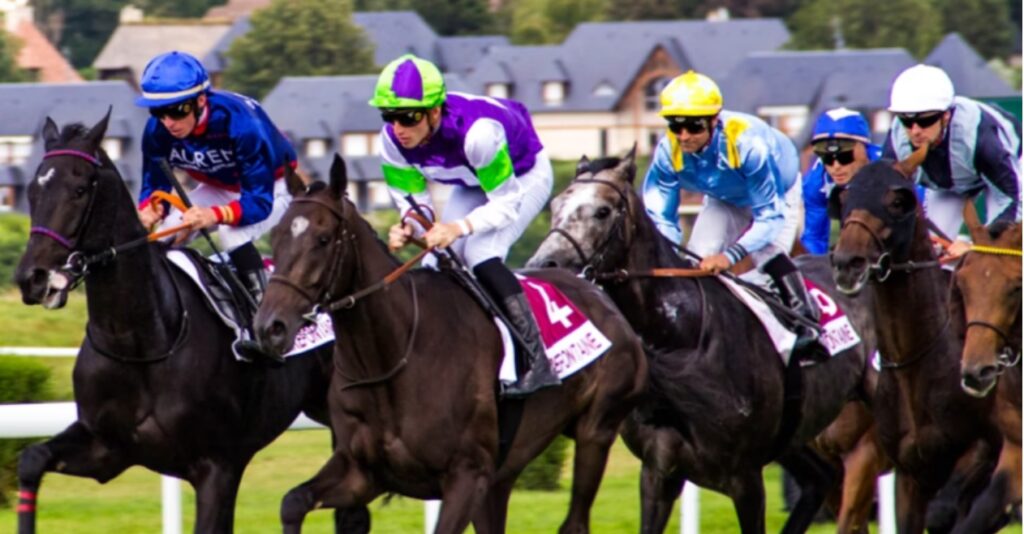 Equestrian sports are a unique combination of centuries-old traditions and modern innovations, where refined riding techniques meet cutting-edge training technologies. Today, even in such a seemingly classic field as working with horses, digital tools are coming to the fore: from heart rate monitors and GPS trackers to video analysis systems and artificial intelligence. As in the world of online entertainment, where beginners often start with attractive offers such as a 10€ no deposit bonus, technology in equestrian sports has also become a kind of “bonus” for riders and trainers — a tool that helps them achieve results faster without unnecessary risks.
Equestrian sports are a unique combination of centuries-old traditions and modern innovations, where refined riding techniques meet cutting-edge training technologies. Today, even in such a seemingly classic field as working with horses, digital tools are coming to the fore: from heart rate monitors and GPS trackers to video analysis systems and artificial intelligence. As in the world of online entertainment, where beginners often start with attractive offers such as a 10€ no deposit bonus, technology in equestrian sports has also become a kind of “bonus” for riders and trainers — a tool that helps them achieve results faster without unnecessary risks.
Modern training technologies in equestrian sports
Video analysis of movements
Today, high-speed cameras have become an integral part of professional and even amateur training. They allow you to capture the smallest details of the movements of the rider and horse that are impossible to notice with the naked eye. These cameras shoot in slow motion, allowing you to study body position, arm movement, balance, and synchronization with the horse’s movements. In addition to filming, modern programs such as Dartfish or Coach’s Eye offer frame-by-frame analysis, the superimposition of graphic lines for posture analysis, and even comparisons of different training sessions in dynamics. This allows you to quickly identify mistakes and correct your technique, increasing the effectiveness of each session.
Sensors and trackers
Monitoring technologies have long gone beyond human sports and are actively used in horse training.
-
GPS trackers are attached to the saddle or special equipment and track speed, distance traveled, pace, and changes in movement rhythm. This is especially useful in dressage, show jumping, and race preparation.
-
Biometric sensors record the horse’s health indicators: heart rate, respiratory rate, body temperature, and stress levels. Systems such as Equisense Motion S or Polar Equine help the trainer regulate the intensity of the workout and prevent overexertion or injury.
With these devices, you can create detailed training profiles, analyze progress, and plan individual training programs.
Trainers for riders
Modern horse riding simulators have become a real breakthrough in athlete training. These are special electromechanical devices that simulate the movements of a horse, allowing the rider to practice their posture, balance, and body movements without physically exerting the animal. Such simulators are especially useful for beginners, who can learn basic skills in a safe environment. Additional realism is provided by the use of VR technologies, which allow you to simulate competitions, different types of routes, and even weather conditions. For example, VR simulators can recreate the track of a future tournament so that the rider can familiarize themselves with all the turns and obstacles in advance.
The role of artificial intelligence and analytics
Artificial intelligence (AI) is increasingly entering the world of equestrian sports, making the training process more accurate, personalized, and safer. Thanks to AI analytics, coaches have access to deep insights that were previously unattainable without lengthy manual work.
Modern systems integrated with sensors and cameras automatically collect data on speed, rhythm, rider position, hand and leg position, balance, and the horse’s response to commands. Artificial intelligence algorithms process this data, identifying even minor errors in technique. For example, programs such as Equimetre or Trackener can determine if there is a delay in the rider’s response, excessive pressure at a certain moment, or incorrect weight distribution. This makes it possible to correct technique immediately, rather than after several training sessions when the mistake has already become ingrained.
AI analytics not only helps improve technique, but also takes care of the horse’s health. Prediction systems use historical training data and physical condition indicators to predict the risk of fatigue or injury. For example, an algorithm can calculate that after several intense days, a horse needs rest or lighter exercise to avoid muscle strains or joint problems. Some platforms even create an automatic recovery plan based on the individual characteristics of the animal. As a result, AI acts as a “smart assistant trainer” that not only points out mistakes but also suggests the optimal path for development, keeping both the horse and the rider healthy.
Digital platforms and training apps
Online platforms serve as electronic journals where you can record each training session: duration, intensity, exercises performed, the horse’s reaction, and how it felt after the session. Services such as HorseNotes or Riders App allow you to add photos and videos, as well as attach data from trackers and sensors. The advantage of online diaries is that they allow you to create a detailed training history that can be analyzed together with your trainer or veterinarian.
Mobile apps simplify the organization of the training process. They allow you to:
-
create a schedule of sessions;
-
set reminders for training, veterinary checkups, or competitions;
-
automatically sync data from GPS trackers and biometric sensors;
-
build progress charts based on key indicators.
-
Some apps, such as Equilab or Ridely, have built-in training programs created by professional riders. This allows athletes of all levels to access techniques that were previously only available in face-to-face sessions with a trainer.
Challenges and limitations of technology implementation
Despite the obvious advantages, modern technologies in equestrian sports also have their own challenges that affect the speed and scale of their implementation.
-
Most high-tech devices, from biometric sensors to VR simulators, are quite expensive. For professional clubs and athletes, investing in such tools is justified, as they can directly influence competition results. However, for amateurs or small riding schools, the cost of equipment is often prohibitive. This creates a certain inequality in access to modern training methods.
-
Even the most expensive sensors and trackers do not always provide completely accurate information. Errors can occur due to incorrect equipment mounting, weather conditions, or individual characteristics of the horse. If the data is inaccurate, the conclusions of the trainer or algorithm may be incorrect, leading to incorrect decisions in the training process.
-
Overreliance on digital tools can lead to the loss of an important element of equestrian sports — the intuitive contact between rider and horse. No program or sensor can completely replace careful observation, experience, and a feel for the animal’s movements. Therefore, the key task of a modern trainer is to correctly combine technological capabilities with classic methods, maintaining harmony between man and horse.


 Regardless of the horse racing discipline, the quality of the race, and the location, we all know that the best jockeys can make a difference to a race outcome. While some aspects of strategy may differ depending on where the jockey rides, the qualities that the
Regardless of the horse racing discipline, the quality of the race, and the location, we all know that the best jockeys can make a difference to a race outcome. While some aspects of strategy may differ depending on where the jockey rides, the qualities that the